L'oiseau Bleu
|
This page is dedicated to the Japanese TV serial drama "L'oiseau Bleu". I was already a fan of Japanese drama, but "L'oiseau Bleu" (Japanese = "Aoi Tori", English = "Blue Bird") has impressed me very much, more than any other drama I've seen so far. It has become my favourite drama, and it will be difficult to surpass it. In this page I try to explain why. Most japanese drama (or "dorama") are set in a metropolitan area like Tokyo. The characters are usually part of community (like co-workers, neighbors etc.) and their story is told with a definite beginning, a middle and an end. "L'oiseau Bleu" does not strictly follow this pattern. The story begins in a small town in rural Japan. The main link of the town to the rest of the country seems to be the railroad. "Blue Bird" is the story of Shibata Yoshimori, one of the station attendants, and of his quest for happiness and freedom. |
Cast of Characters
|
Shibata Yoshimori played by Toyokawa Etsushi |
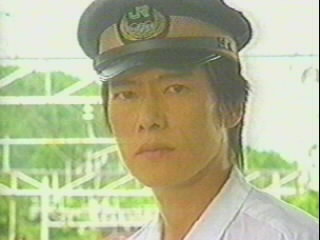
|
|
Machimura Kahori played by Natsukawa Yui |
|
|
Akimoto Mikiko played by Nagasaku Hiromi |
![[ Mikiko ]](mikiko.jpg)
|
![[ Shiori at 9]](shiori.jpg)
|
Machimura Shiori at 9 played by Suzuki An |
|
|
Watanuki Shiori at 15 played by Yamada Maiko |
![[ Shiori at 15 ]](shiori15.jpg)
|
![[ Hiromu ]](hiromu1.jpg)
|
Watanuki Hiromu played by Sano Shiro |
|
| Nakaya Noburu as Junichiro Watanuki | - | Maeda Gin as Shibata Kenji | ||
| Aoyagi Buntaro as Takagi | - | Sakuraba Hiromichi as Shimizu | ||
| Asano Kazuyuki | - | Ukaji Takashi | ||
| Scenario by | : | Hisashi Nozawa | ||
| Directed by | : | Hiroyasu Doi, Kanji Takenoshita | ||
| Produced by | : | Seichiro Kijima | ||
| Music by | : | Akihiko Fukaura (as S.E.N.S.) Yukari Katsuki (as S.E.N.S.) |
||
| Theme song | : | Wandering Destiny by Globe | ||
On this page
Show description and analysis:
- Setting the stage
- Breaking free
- The journey home
Strong points
Weak points
Defining moments (with screenshots)
Show Producer's comment
Other "L'oiseau bleu" pages
Warning: If you have not seen the show, don't read the following description, or you'll may loose some of the excitement and the suspance. You may consider visiting some of the other links first. But if you decide to read on anyway, be aware that I have purposedly omitted some details in order not to completely spoil your viewing experience.
Setting the stage
As is common for doramas, the main goal of the first few episodes is to present the characters, and show us about their lives. There are two sets of characters in the story: the people that live, and have lived since they were born, in the little town : Yoshimori, one the station attendants, Mikiko, the daughter of a local noodle shop owner, Tadashi the station master, father of Yoshimori.
The other set comes from a family that has recently returned to the small town with plans to develop it into a tourist resort: Hiromu and his father are the owners of the development company, Kahori is Hiromu's wife, and Shiori is her 9-year-old daughter from a previous marriage.
At first, it seemed that "Blue Bird" was about the developing friendship between the station attendant and the little girl who used the train to go to school every morning.
Initially, I was attracted by how Yoshimori's life was portraied. I have never seen how a small station is run in Japan (or the US), but when I was a kid, I used to spend a lot of time at the train station of my home town in Italy, and I have to say that I could re-live the moments I spent there in "L'oiseau Bleu".
Life in a small station is driven by the train schedule. You have moments of great activity, when one or two trains are due at the station, and long periods of wait, between trains. During these periods, the station personnel do many little things: spread water in the square at the front of the station to reduce the dust risen by trains; attend the flowers and vegetables in the small garden; take care of some birds in a cage.
Every day is the same, every train arrives at the same hour, it is greeted in the same way, the passengers show their tickets, and are seen off with the same gestures. It is a ritual that is repeated almost religiously over and over again.
Needless to say, anything that disrupts such a quiet life style can have very dramatic consequences. But at first I couldn't see how a small girl could change the life of Yoshimori in such a profound way.Enter Shiori's mother, Kahori. Her marriage with Hiromu is not a happy one. Hiromu is too busy with the development project, and too weak to resist his father, who despises Kahori and treats her like a servant. Every occasion is good to remind her that she was saved by Hiromu from an even worse destiny, and that her role is limited to that of a housekeeper.
Although Hiromu seems to really love Kahori and Shiori, he regularly fails to meet their emotional needs.
Neither Shiori is happy at first. Her father does not play with her, and the other kids at school still treat her like an outsider. Her only friend seems to be Yoshimori. She starts to spend more and more time with him, eventually considering him the father she never had. Kahori is of course very happy to see that Shiori is not alone anymore, and she starts to be attracted by Yoshimori, and by his uncomplicated life.
Yoshimori is not happy either. He is also looking for a way out of his pointless life, with the same actions repeated day after day. In a way, he is in a prison without bars. His life is not in his control. He is merely waiting for the next train to arrive and depart, but he is always remaining in the same place.
When I realized this, I was shocked ! Every one of us is in his or her own prison, looking for something to save us from our daily routine. I then started to realize the meaning of the opening title, where Yoshimori is handcuffed in a train, and then in a jail cell, and is crying for someone to set him free.By now I was hooked. I could identify myself with Yoshimori. Not only I would see his every action at the station as the actions of the railway personnel that befriended me when I was a kid, but I could also see myself in the same cage.
Breaking free
Yoshimori is attracted to both Shiori and her mother. But he is resisting the temptation of openly express his affection to Kahori. His own mother betrayed the family and left him and his father to go with another man, so Yoshimori doesn't feel his relationship with Kahori should continue. It is not easy to break up, however. When Kahori rents a cottage in a secluded place on the mountains and suggests she and Yoshimori spend some time there, he reluctantly declines. There is nothing he can do. Once again he is trapped inside the cage of his life.
But although Kahori had been careful not to let anyone know, Hiromu finds out that she has rented the place, tough he has no idea that it was to be used by her and Yoshimori. He suspects that another man is trying to steal her away from him. He is a powerful and resentful man, who will not let her go no matter what the cost. He has to show his father that his decision to marry Kahori was not a mistake. He is determined to find out who the man is, and to make him pay.
Knowing that he can be blinded by his own rage, he even asks Yoshimori to accompany him to the cottage, for fear that he would kill whoever he finds there. Yoshimori refuses, and hastily calls Kahori to tell her what Hiromu knows.At this point in the story the tension is at its peak. The breaking point is reached when Hiromu, determined to make Kahori pay for her actions (despite the fact that he doesn't have a proof that she was seeing another man), decides to send Shiori back to school to Tokyo.
Kahori is devastated. Shiori was the only hope she had for some happiness, and even that is being taken away from her. But she knows she cannot resist her husband, and she takes the train to go to register Shiori at the new school.
At the station, when Yoshimori hears what is about to happen, he cannot bear it anymore. He is ready to pay for his treacherous relationship with Kahori, but he cannot allow that Shiori also pays for it. In maybe the first impulsive decision of his life, he jumps on the train with Shiori in his arms, determined to avoid her the fate that he suffered when his own mother left the family.There is a sad irony in Yoshimori's decision. By escaping from his cage, he did to Hiromu what his mother did to Tadashi. Yet, what else could Yoshimori have done ? His decision, although impulsive, was logical, and even understandable. In a moment, the cage is open, and he, Kahori and Shiori can fly away in any direction they chose.
At first, it seems that the plan can work out. The train is a very convenient way of transportation in Japan (as is in Italy). Yoshimori knows by memory the routes that will take them to where he hopes the three of them can rebuild a life. But he also knows that Hiromu will not forgive them. When Hiromu finds out what happened, he is more than ever determined to have his revenge. He starts following the three wherever they go: using two "investigators", he finds out that Yoshimori has taken them to the farm his mother lives in. Luckily they manage to escape before the investigators arrive, but is not easy to live as fugitives with a 9-year old. Shiori cannot skip school for too long if she has to live a normal life. It is inevitable that they will leave some clues that will eventually tell Hiromu where they are.
Their constant struggle to stay one step ahead of Hiromu eventually brings them to a secluded hotel by a lake where Kahori spent some time when she was young. The hotel is closed for the winter, and Yoshimori suggests they stay there until the next tourist season. The manager of the hotel even offers to let Shiori enter the local school.
Everything seems to have settled down, for a while. However, Hiromu is more determined than ever, and he eventually shows up at the hotel to confront Kahori and Yoshimori.The tension that had subsided until now explodes. Hiromu's rage can only have tragic consequences in a dramatic climax that stunned me even more than what had happened until now.
Yoshimori cannot fight anymore. He is defeated. All he has hoped for is destroyed. When he is senteced to 8 years of prison, he doesn't care anymore. His world has collapsed. When the prison doors close behind him, we realize that his conquered freedom didn't last long, and once again, he is thrown back in his cage.
The journey home
6 year later, Yoshimori is released on parole. But what is he to do? His life cannot be the same anymore. In a way, even though he is not in the jail cell anymore, he brings with him the consequences of his past actions. He is a different, defeated man who cannot hope to find happiness anymore.
He has been offered a new job, while on parole. On his way to the site where he is to spend the rest of his sentence, he stops at his home village to pay his respects (and to ask for forgiveness ?) to the people he left. His father has died while he was in prison, and since he will not be able to live there anymore, he has decided to sell his house. Mikiko is still there, now managing her family's restaurant. Even Hiromu is there; he won the election and is now running for a second term as mayor. Unexpectedly, Shiori returns to the town as well. She has grown up with the scars of a lonely and shattered childhood inside her.
What is she to do with her life ? All the adults she knows cannot support her. Hiromu is more than ever engaged in his career as a politician, and Yoshimori is a broken man, without much hope for himself. And yet, he urges Shiori to keep going, to keep looking for someone to love and who can love her. She will find happiness despite all the sadness she has endured all her life.But Shiori cannot go on alone. She needs someone to cling to now more than ever.
Yoshimori leaves the town to reach his final destination. Shiori does not know what to do, where to go. When she learns that her father has decided to send her to study in America, and then he is already planning for her arranged marriage, she decides to take her future in her hands. She wants first to visit the town where her mother lived when she was young. Shiori then joins Yoshimori on the southbound train, determined to travel with him as long as their paths go in the same direction.
While Yoshimori is against Shiori's decision, he cannot abandon her. While traveling together, he decides to accompany her to the end of her trip, even though this will look bad for him. In a way this is in reparation for the broken promise of taking a family trip with Shiori and Kahori to her native village. Besides, Shiori has now more serious feelings toward Yoshimori, although she is still immature in her refusal to see Yoshimori's point of view, and how this journey will jeopardize his future.Yoshimori calls Hiromu to tell him that he is travelling with Shiori, and that she will return home after they reach their destination. But Hiromu wouldn't understand. He would only see that Yoshimori is trying to steal his daughter in the same way as he stealed his wife. Besides, it will look good for his campaign if he plays the role of the victim, and so he denounces Yoshimori as a kidnapper.
And so, once again, Yoshimori is chased by superior forces, which seem to conspire against his quest for happiness. Yet, he cannot concede defeat. He has to keep struggling, against all odds, to stay with the one he cares about. After they reach their destination, on the southernmost island of Japan, they spend the night on top a lighthouse, waiting to see the Southern Cross star.
Yoshimori then turns Shiori to Mikiko, who has been chasing them in an attempt to make Yoshimori reconsider his actions, and then waits for the police to take him back to prison.
Strong points
- A wonderful, unconventional storyline, with solid characters who, as in the best tradition of Japanese drama, are never totally good or evil. Every character has the best intentions to do good. Even Hiromu's character is reacting to circumstances, and can inspire some simpathy from the unbiased viewer.
- A masterful direction. I was astounded by how the director could play with the viewer's emotions, slowly building up tension and then releasing it in few, carefully placed climactic scenes.
- The show is unconventional, for a Japanese drama. First of all, the setting is not a metropolitan area, but a rural town. Then, the characters take on two trips across the country, while most dramas never show us more than a few blocks of a city. Then, it is a two parts drama, spanning almost a decade in the lives of the characters.
- I still have to decide if the story is about the Yoshimori-Kahori-Hiromu triangle or if it is more about the relationship between Yoshimori and Shiori. But this is all the more fascinating! A love triangle with a fourth, unexpected edge.
- A high level of symbolism. For example, in the first part of the show, Yoshimori travels north, to the coldest part of Japan. In the second part of the show, he travels south, to the warmer part of Japan. And, in the last scene, he is back in his home town.
I liked the intrinsic simmetry.
I'm sure there are many references that I missed, never having been to Japan and not knowing that culture very well. Yet this makes me want to watch the show over and over again, trying to look for clues that I previously missed.- The level of detail achieved in portraying Yoshimori's character. When he says that he works for three days and then has two days free before three more days on a different shift! This is exactly the same shift pattern used in the Italian railways. Not to mention all the little actions of Yoshimori and his father at the station.
- A worderful soundtrack ("Wandering Destiny" by Globe). In the long version, the pace of the song matches somehow the rise and falls of tension in the show, in a way packing 11 episodes in 6 minutes of music.
Weak points
The only weak point I could find is really the heavy use of the train by a wealthy family who could afford expensive cars and chaffeurs. On the other hand, given Hiromu's father attitude toward Kahori, it may be justified for her to not fully use her car to go around. Anyway, this is a very small complaint compared with all the good points.Another unsettling point is Mikiko's attitude toward Yoshimori and Kahori. Although it is clear that she loves Yoshimori, Mikiko does not interfere with his affair, and throughout the show she is the most supportive of Yoshimori's decisions. Alas, this seems to be a common theme in Japanese dramas : the rejection of one's own happiness for the wellbeing of a loved one.
Finally, I could not understand why Yoshimori, when he sees Mikiko on the station platform, turns away and joins Shiori in her journey to Kahori's home town. Until now I had perfectly understood every action of Yoshimori. But I still wonder why, when seeing Mikiko, he compromises his future again and runs away.
Defining moments
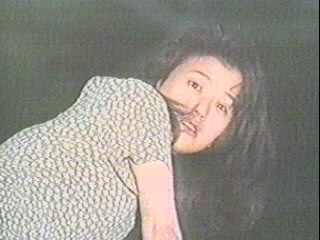 |
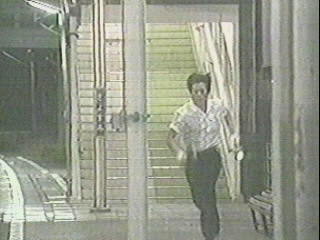 |
 |
|
|
When a drunken Kahori wants to follow the railroad tracks to reach the
next station late at night, Yoshimori runs to save her from an incoming train.
Although Yoshimori is concerned about the safety of the public, like every railroad worker, he subconsciously may already be in love with Kahori. |
|||
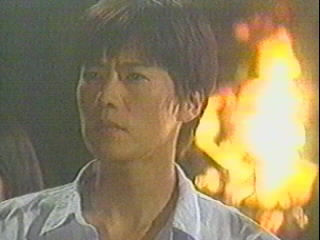 |
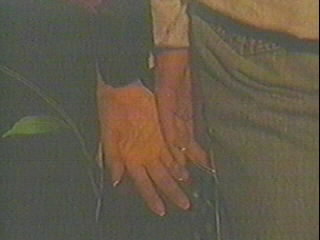 |
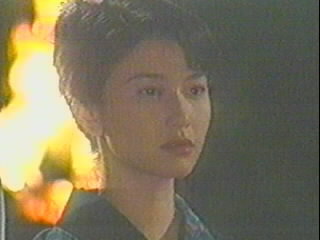 |
|
|
At the summer festival, Kahori and Yoshimori watch a dance performance
amid symbolic flames of fire.
Only the expression-less faces and the hands of the two characters are shown, yet this is a very erotic scene! |
|||
 |
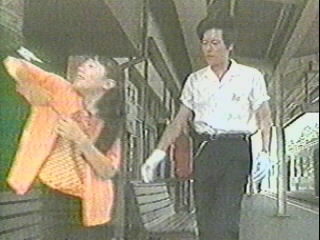 |
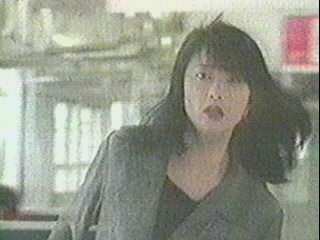 |
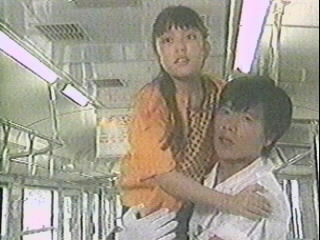 |
|
Yoshimori takes Shiori in his arms and jumps on the train,
joining Kahori, and beginning their fateful journey.
A climactic scene that turns the show in an unexpected direction. |
|||
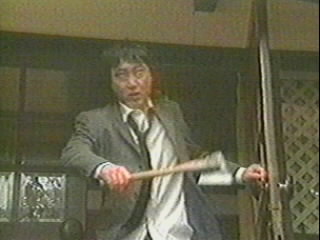 |
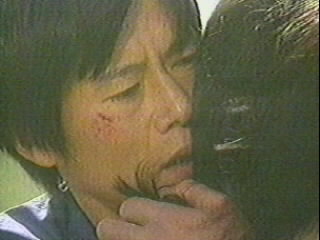 |
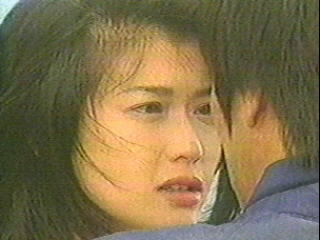 |
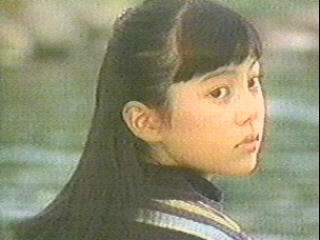 |
|
Hiromu confronts Yoshimori at the lodge, while Kahori runs away.
This entire episode is full of tension and ends in an unexpected way, leaving the viewer at a loss. What could possibly happen in the next episode, I asked myself in shock after watching this episode! |
|||
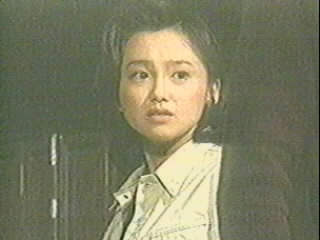 |
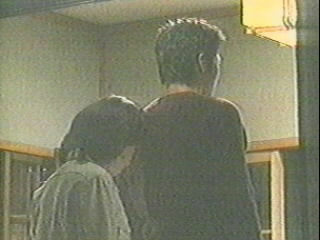 |
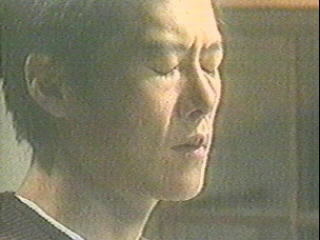 |
|
|
Mikiko finally declares to Yoshimori, saying she is tired of
seeing him off.
Yoshimori closes his eyes in pain, knowing that he must hurt her once again, and maybe feeling unworthy of Mikiko's love. |
|||
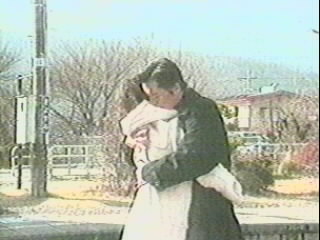 |
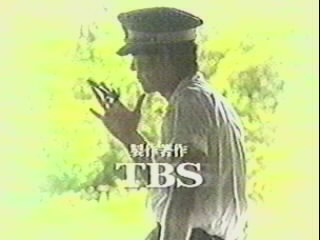 |
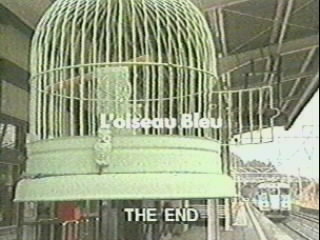 |
|
|
The last scene of the show !
Hearing the final lines (Shiori - "Okaeri nasai". Yoshimori - "Tadaima") still send shivers through my spine. That was a wonderful ending! |
|||
Show Producer's comment
The following comment was translated from the official "L'oiseau Bleu" page:
"I have started to roll this drama since I would like to work with Etsushi Toyokawa. I thought of this idea at the "Galaxy award winning ceremony '95". At that time, it had been past 2 years since the last time I worked with him in "Aishiteiru to Ittekure (please say you love me)"Thank you Kobayashi-san for the translation.I thought of this title "L'oiseau Bleu", when Mr. Nozawa and I had a meeting at the cafe in July. It was a very hot day. He already had been describing the scenario for 1 year.
I visited to L.A. to ask Testuya Komuro (who is a music producer) to make the theme song. Globe is singing the song.
I made my motto to do something that was never done before in making TV drama. That's why we used a movie style to go on location in Japan from North to South.
We courteously made this drama just like we liked it. I hope that this drama makes a breakthrough in the adult drama TV and indicates the direction/possibility for making drama in the multimedia age."
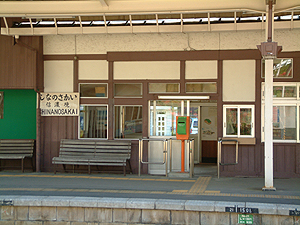
Other "L'oiseau Bleu" links
- Raymond's account of his visit to Fujimi-machi, where Aoi Tori was filmed.
- An incredibly detailed scene by scene description by Steve Jang.
- A review of "Blue Bird" by "Dr." Dave Seid (link appears to be defunct).
- KIKU-TV episodes short synopsis.
- "L'oiseau bleu" official home page (in Japanese)
- Fujimi-machi web site; "L'oiseau bleu" was shot in Sakai-mura (village), near the town of Fujimi (in Japanese).
Credits
"L'oiseau Bleu" is copyright Tokyo Broadcasting System (TBS).
Images captured by myself from the U.S. TV broadcast, reproduced without permission.English subtitles : JN Productions, Inc. (Honolulu, Hawaii)
English Translation : Christine A. Owens
Broadcast on KTSF Channel 26 from December 19,1998 to February 21,1999This page created by g_caprino@katamail.com (remove the _ before sending your message.
Also on this web site: CG's home page | Japanese TV in the Bay Area